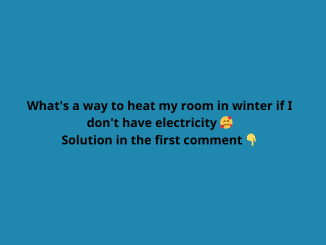Love is a wonderful experience, but it can sometimes cloud our judgment when it comes to recognizing problems in a relationship. While compromise is necessary, it’s equally important to identify subtle signs that your partner might not love you as deeply as you deserve. These signs, often overlooked, can point to underlying issues that may need to be addressed for a healthy, fulfilling relationship.
Repetitive Arguments Without Resolution

Do you feel like your arguments with your partner are going in circles? This could signal a lack of willingness to resolve conflicts.
- The Problem: Constantly rehashing the same fights without finding a solution can create a toxic environment in your relationship. Clinical psychologist Dr. Joshua Klapow explains that unresolved conflicts build resentment and wear down emotional intimacy.
- What to Do: Consider discussing recurring issues calmly or seeking couples therapy to learn effective communication skills. Resolving conflicts together strengthens the bond between partners.
Healthy relationships thrive on compromise and understanding, not unresolved disputes.
Arguments That Turn into Personal Attacks
Disagreements are natural, but when they turn into personal attacks, they become harmful.
- The Danger: Arguments that shift from addressing behaviors to targeting personal traits are damaging. When phrases like “I don’t like what you’re doing” become “I don’t like you,” it’s a clear red flag.
- The Fix: Use constructive communication techniques. For example, focus on expressing how you feel rather than attacking your partner’s character. This creates space for dialogue rather than defensiveness.
Constructive communication ensures conflicts lead to solutions, not emotional scars.
No Conflict at All? It Might Be a Bad Sign
It might seem ideal to never argue, but it could signal avoidance rather than harmony.
- What It Means: If your partner avoids addressing issues entirely, it can lead to emotional distance over time. Avoiding conflict might seem peaceful, but it often means problems are being ignored rather than resolved.
- How to Address It: Open, honest conversations about your needs and concerns can help both partners feel heard. A lack of conflict shouldn’t mean a lack of communication.

Healthy relationships require both peace and the ability to navigate difficult conversations together.
Lack of Trust in Everyday Matters
Trust is foundational in any relationship, and it extends far beyond fidelity.
- The Signs: If your partner doubts your ability to handle daily responsibilities, like managing finances or keeping commitments, it might indicate deeper trust issues.
- The Solution: Build trust by demonstrating reliability and addressing any insecurities openly. Trust grows when both partners feel confident in each other’s intentions and actions.
Without trust, even small cracks can lead to larger problems in the relationship.
They Ask You to Change Yourself
Encouraging growth in a partner is healthy, but constant requests to change your habits, appearance, or behavior is a different story.
- What It Indicates: These demands often stem from dissatisfaction in the relationship rather than genuine concern for your well-being. They can chip away at your sense of self.
- The Response: Set boundaries and stand firm in your identity. A loving partner will embrace who you are rather than trying to mold you into someone else.
Love should feel like acceptance, not a series of conditions you must meet.
Excessive Independence Can Be a Warning Sign
Independence is essential, but when your partner’s life rarely includes you, it could indicate detachment.
- The Concern: If your partner’s schedule prioritizes others—friends, work, or hobbies—over you, it might signal a lack of commitment. Dr. Klapow notes that this behavior can reflect an emotional withdrawal.
- The Balance: Relationships flourish when there’s a balance between independence and shared experiences. Make an effort to create meaningful moments together while respecting personal space.
A relationship works best when both partners invest time and effort into nurturing it.
Possessiveness Isn’t the Same as Love
It’s easy to confuse possessiveness with care, but it often reflects insecurity rather than genuine affection.
- The Red Flag: Possessive behavior, such as jealousy or controlling actions, undermines trust and creates a toxic dynamic. It can escalate into emotional abuse if left unchecked.
- The Approach: Address possessiveness early. Discuss boundaries and the importance of mutual respect in a healthy relationship. If necessary, seek help from a professional.
Real love allows freedom and trust, not control or suffocation.
Indifference: A Silent Relationship Killer
Indifference can be more damaging than anger in a relationship.
- The Warning Sign: A “do whatever you want” attitude often reflects emotional withdrawal and apathy. It can feel like your partner is no longer invested in the relationship.
- What to Do: Open up a conversation about your feelings and try to reconnect emotionally. If apathy persists, it might indicate that your partner is no longer committed to the relationship.
Love requires care and attention; indifference signals a lack of both.
Avoiding Future Plans Together
A partner who avoids discussing future plans with you might not see a long-term future together.
- What It Suggests: Hesitation to include you in conversations about vacations, events, or life goals could mean doubts about the relationship’s longevity.
- The Discussion: Bring up your concerns and ask about their vision for the future. If they’re unwilling to include you in their plans, it’s a sign worth paying attention to.
Commitment involves envisioning a shared future and actively working toward it.
How to Rebuild a Relationship on Shaky Ground
If any of these signs resonate with your relationship, don’t panic. There are ways to address the issues and strengthen your bond.
- Highlight the Positives: Acknowledge and appreciate the good parts of your relationship. Focusing on positive behaviors can encourage growth and connection.
- Open Communication: Talk honestly about the areas of concern. Listening to each other’s perspectives can provide clarity and direction.
- Seek Professional Guidance: Relationship therapists can offer tools to rebuild trust, improve communication, and strengthen your connection.
- Know When to Walk Away: If your relationship feels consistently one-sided or emotionally damaging, it’s okay to let go. You deserve a partnership built on mutual love and respect.
Rebuilding takes effort, but it’s worth it if both partners are willing to grow together.
Conclusion: Love Should Feel Like Love
Recognizing the subtle signs that your partner may not love you the way you deserve is an essential step toward emotional health. Relationships should bring joy, support, and growth—not constant conflict or feelings of inadequacy. Whether through honest communication, professional help, or personal reflection, you have the power to address these issues and create a healthier dynamic.
Ultimately, you deserve a partner who loves and respects you fully. Don’t settle for less than what your heart deserves. Take the time to reflect on your needs and prioritize your well-being, because love, when it’s real, feels like home.


